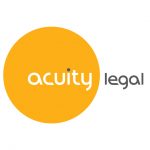
Jon Bridge
* Since this Q&A was published, Jon has taken up a new role as Operations Director at S.A. Brain and Company Ltd.
Jon describes himself as a retailer who specialises in people.
Just two years after finishing school, he was promoted to a regional role with Iceland Frozen Foods.
In 2017, Jon won the CIPD award for ‘Outstanding contribution to the profession’ as a direct result of the commitment and support he offered Cardiff and Vale College in establishing the Kitchen Skills Academy.
Tell us a bit about how you got into your current role
Retail is at the heart of everything I’ve ever done. I was going to be a geography teacher but ended up getting promoted on my year out before university. Iceland gave me a good foundation. By 19 I was covering the HR for 52 stores in central London! I also completed a degree in leadership while I was with them.
I later moved into an operational role with House of Fraser, before being promoted to a regional role and then Head of HR. I studied for a master’s degree in HR part-time, which worked really well for me; theory’s good, but you need some grounding in reality. I wanted to move back home to Cardiff, so was lucky enough to secure a senior HR role with Brains.
What do you enjoy most about your work?
Variety. Every day is totally different, particularly with people as you never know what you’re going to come into.
I really love the commercial value and impact you can have through people – seeing the difference you can make by getting a hiring decision right, setting up a development programme or negotiating an arrangement.
What has been the key to your success?
Authenticity – I’ve never tried to be something I’m not. I’ve always had an inner confidence that I’m doing the right thing; partly it’s from my upbringing, but I’m also fortunate to be able to speak to people. I’m able to build relationships with people at every level by listening, empathising with other people’s situations and being consistent. You’ve got to treat people as you’d like to be treated.
Which achievement are you most proud of and why?
Clearly winning the CIPD award was great as that vindicated my approach to HR. It meant a lot as I was recommended for it by one of my key partners, Cardiff and Vale College. I’m proud of what we’re beginning to achieve with the partnership. But I get more out of the thank yous that come from one on one interactions.
What is the most important lesson you’ve learned in your career?
To ask questions first. If you don’t listen, you won’t understand the full picture and you’re less likely to make the right decisions or give the right advice. People will generally tell you what they think you want to hear rather than what you need to know, so you need to be able to ask the right questions.
Which 3 qualities do you think are most important for aspiring HR leaders?
Emotional intelligence: You’ve got to be able to build relationships and read between the lines– often the most important thing that needs to be said hasn’t been. Being able to share something about yourself first will help you gain trust.
Commercial acumen: In the business world, you must be able to control costs or drive profits. If you can’t demonstrate the value that you can provide, you’re always going to struggle.
The ability to challenge people: Sometimes, you just need to do the right thing – not because it’s policy, but because you should.
What advice would you give to those with ambitions to reach a management or leadership level in HR?
To gain operational experience in a line manager role, even if it’s in a different industry. You’ll be more credible because you’ll understand what it’s like to be in the position your people are in. Also, always strive to talk people’s language.
What do you think is the biggest challenge for HR in the workplace?
I think it’s still the perception of HR, which is why I focus on the commercial value of what I can bring to the organisation. I think a lot of people still see HR as a tick-box, short-term fix, rather than a long-term gain.
Which employees can benefit the most from mentoring?
I think all levels can benefit from mentoring, but the individuals who can benefit the most are those at a higher level because they have a wider impact. If you’re looking for true cultural change and behavioural development, then you’ve got to start there. As an organisation, you’ll gain more from a mentoring scheme at senior level because every employee will benefit from it.
In your experience, what are the best ways to engage employees?
Through honest, human communication, being authentic, communicating your vision and allowing people to input into that vision. Engagement for me is about giving people a voice. If people are given an opportunity to talk through the journey, they’re more likely to get on the bus.
AI: hindrance or help for HR?
HR is about human interaction, so while AI will no doubt save time with some of the transactional elements of HR, when it gets to the nitty gritty you can’t replace looking someone in the eye and having a conversation. That’s often what makes the difference between moving things forward or not.
What impact do you think GDPR will have on your role?
Not a huge amount. If you’ve got your systems and processes set up and you’ve got a legal basis for why you’re holding information and what you’re going to use it for, there isn’t a huge amount of difference from the data regulations in place anyway. There’s a lot of hype around GDPR, but actually it’s about doing the right thing.
When and how can a recruitment partner be of most help to an HR department?
When you’re looking to recruit a more senior or specialist role. Many of our roles will be recruited internally, but sometimes you can’t do justice to a role and need a specialist agency who live and breathe that type of role every day. I don’t think you’re ever going to eliminate the need for recruitment partners.

